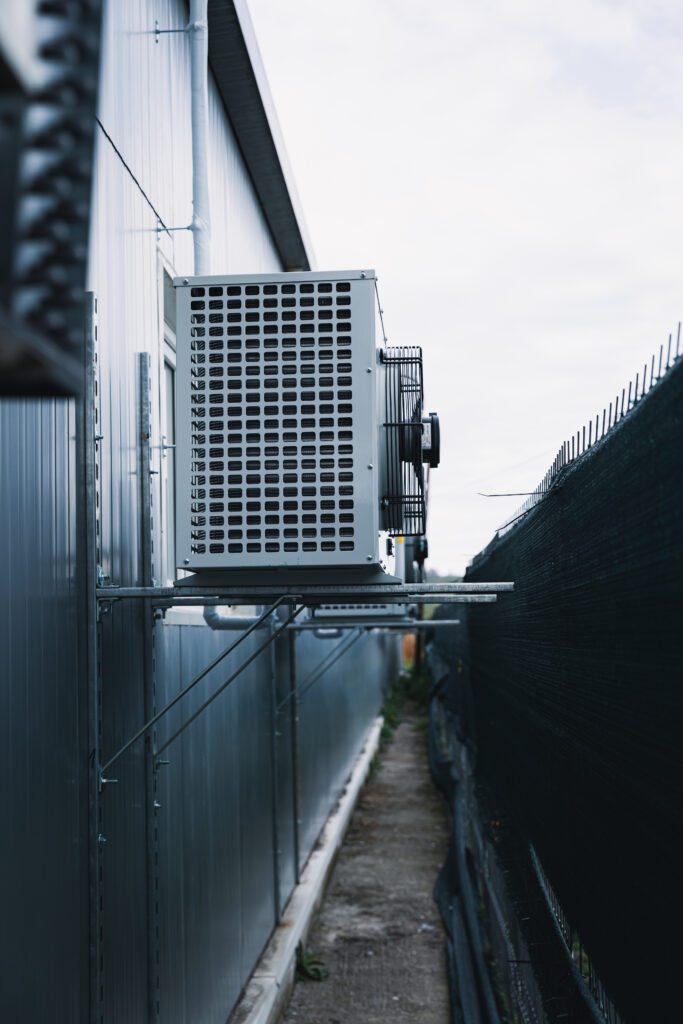This tiny component plays a vital role in keeping the air in your environment both cool and comfortable.
Understanding how it works, and what it does, can help you maintain your AC system and avoid costly breakdowns, especially during the summer.
We’ll be sharing a few things you need to know about your air conditioning evaporator coil and how you can prevent it from an untimely breakdown.
What is the evaporator coil in an air conditioning system?
To start with, the terms ‘evaporator coil’ and ‘air conditioning coil’ are often used interchangeably.
Technicians may use either term, so knowing they refer to the same component can prevent any confusion when discussing your air conditioning system.
But how exactly does an air conditioning system keep the air in our buildings cool? The key component is the evaporator coil.
The evaporator coil or air conditioning coil is a heat exchanger located inside the indoor unit of your air conditioning system. It absorbs heat from the air inside your home and transfers it to the refrigerant flowing through the coil.
This refrigerant then carries the heat outside, where it is released by the condenser coil.
The evaporator coil is made up of a series of thin, metal fins wrapped around a network of copper or aluminium tubing.
As warm indoor air blows across the coil, the refrigerant inside the coil absorbs the heat, causing it to evaporate and turn into a gas.
This cooling process removes heat from the air, which is then circulated back into your home, providing that refreshing, chilled atmosphere you seek.

What is the lifespan of an air conditioning coil?
With a proper maintenance schedule, you can generally expect the lifespan of an air conditioning evaporator coil to be between 10 and 15 years.
Indeed, a condenser coil is more likely to encounter issues because it’s exposed to the elements and therefore more vulnerable to damage.
Bear in mind though that the actual lifespan of your system’s coils will depend on many different factors, including:
Usage patterns
Using your air conditioning units frequently, such as running them for long hours or turning them on and off regularly, will wear out your air conditioning coils faster. The strain and frequent cycling of the system takes a toll on the coil components, causing it to wear out much quicker. To extend the coil’s lifespan in high-usage homes, keep up with regular maintenance like cleaning the coil and changing air filters regularly.
Climate conditions
High humidity or dusty and polluted environments can also affect coil lifespan. The moisture in homes in the UK can lead to corrosion and condensation build-up on the coil, while dust and debris will clog up the delicate fins and impede airflow. Using a dehumidifier in very humid areas can also help reduce strain on the AC system and coil.
Maintenance history
Properly maintaining the evaporator coil through regular cleaning and professional servicing is critical for maximising its lifespan. Neglecting maintenance allows dirt, dust, and other contaminants to build up on the coil, restricting airflow and forcing the system to work harder. We recommend checking the coil visually and cleaning it at least once a year.
What happens when an AC coil goes bad?
When an air conditioning evaporator coil starts to deteriorate, you will notice issues impacting the performance and efficiency of your system.
Signs of this include:
Coils clogged with dirt and debris, have restricted airflow. This leads to a decrease in the overall cooling capacity of your system.
Damaged or dirty coils can cause the refrigerant inside to become too cold, leading to the formation of ice on the coil surface. Further reducing airflow can lead to compressor failure.
A poorly performing coil requires the compressor to work harder to maintain the desired temperature, resulting in higher energy bills.
As the coil deteriorates, it can become a breeding ground for mould and bacteria, leading to musty or unpleasant odours being circulated throughout your home. If left unchecked, a failing coil can eventually cause your entire air conditioning system to break down, requiring a costly replacement or repair.
What is the cost of replacing a coil in an AC unit?
The cost of replacing an air conditioning evaporator coil in the UK can vary significantly, depending on the size and complexity of your air conditioning system, as well as the location and labour rates of the HVAC technician performing the work.
The average cost across the UK varies, with the following factors influencing the final cost:
- Size: If your AC uses larger coils, (typically found in larger homes or commercial buildings) they will be more expensive to replace.
- Type: Materials with higher durability such as copper, will generally cost more than those made of aluminium.
- Accessibility: The location of your coil can also affect the cost. If the coil is located in a hard-to-reach area, the labour costs may be higher & access equipment may be required.
- Additional repairs: If other components need repairing or replacement, the total cost will be higher.

Is it worth replacing a coil on an air conditioning unit?
In general, if your AC unit is relatively new (less than 10 years old) and the coil is the only component that needs to be replaced, it may be worth the investment to replace the coil.
However, for older units, the coil replacement may not be the best long-term solution.
In these cases, it may be more cost-effective to consider upgrading to a newer, more energy-efficient air conditioning system, which could provide significant savings on your energy bills over the long run.
The best thing to do when in doubt is consult with a qualified HVAC technician when considering replacing the coil. They can assess the overall condition of your system and provide a recommendation based on your specific needs and budget.
With years of experience and a team of certified professionals, Setpoint22 is committed to helping you navigate air conditioning coil maintenance and replacement.
If you’re having issues with your AC and you’re not sure if it needs replacement, reach out to our team of certified professionals for a free quote.